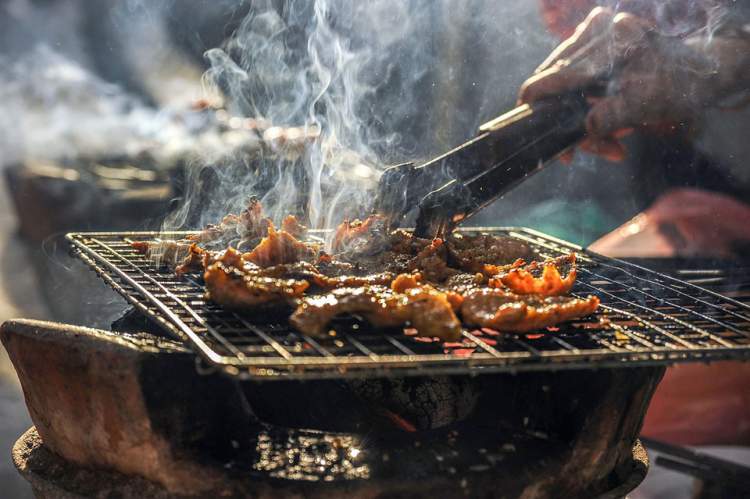The moral of the story of Tumama ibn Uthal
A sage sheikh was asked by someone why he should repent his sins if Allah is the Most Forgiving anyway? The story is long, but I present it in a short form.
The sheikh's response was:
You can commit as much sin as you can if Allah does not see. Oh sheikh, this is impossible, since Allah sees everything! Well, then I'll say the next one.
You can commit as much sin as you can if you do not eat from the providence of Allah from now. Oh, sheikh, that's impossible too! Well, then let's see the next.
You can commit as much sin as you can if you do not live in the land of Allah. Oh, sheikh, wherever I go, it is His land, I can't keep that either. Well, then I'll say the fourth.
You can commit as much sin as you can if you can send away the angel of death when he comes. Tell him to come another time, you haven't prepared yet. Oh, sheikh! How do I tell him, he can't be held back! Okay, then I'll say the last one.
You can commit as much sin as you can if you can send away the angel who is taking your soul to Hell on the Day of Judgment.The man realized that without repentance his soul will not find rest. The parable shows not only the importance of the repentance, but also the way how Islam can be explained patiently. The followers of the Prophet (peace be upon him) were not patient. Not because they were bad people, but because they were just as human as you and anyone else are. You are not patient either, nor am I.
This, too, must be learned and practiced.
There was a man called Tumama ibn Uthal. He was a very rich merchant, ruling over a vast area. We could say he was a king. He was offended by Muslims in connection with some deal and he decided to take a revenge. He hated Mohammed (peace be upon him). Islam for him was a word what he didn't want to hear. He was determined to kill the prophet. I will shorten the story here as well. He couldn’t kill the prophet, but he managed to kill a couple of his followers. He was later captured and tied up. The news about that reached the prophet. Bring him to me, he said. When Tumama stood before the Prophet, he asked what he had done. Tumama confessed what he intended to do. He admitted that he killed the people, but with that, he considers the case closed for his part. Hearing his impudence, the companions of prophet were overwhelmed with anger, and they demanded his death. The Prophet calmed his companions down and asked them to give Tumama proper care, camel milk, etc. Then the next day he asked him again. Tumama came and repeated word by word the same thing he had stated the day before. On the third day the same thing happened, and then on the fourth day Muhammad (peace be upon him) ordered his release. The companions understood nothing, but obeyed. When Tumama was about to leave the place, he turned back and said: “So far for me, Medina was the most hated place and you were the most hated person on earth, but from now Medina is the dearest place for my heart and you are the man closest to my heart on earth. I confess that there is no other God but Allah and You are His Prophet.”
The first story exemplifies that the believer must offer repentance. The second is about a man who was an unbeliever, he has not showed repentance and Islam has not yet penetrated his heart. The soft soul and love of the prophet, on the other hand, made an impact. We see the patience and attitude that we often lack.
Why do I say that? Because, we make judgements over others quickly. Even over those who don’t know what Islam is and if they know something, they know it wrong. Even more trouble is when we ourselves have a poor knowledge of Islam and its spirit.
Prayer is important to us for a thousand reasons. Among many other things, it also imposes a system in our lives. However, there are other people for whom other events dictate the system of life. A peasant also gets up at dawn to feed his animals, to milk his cow. He won’t even look at his watch, just the rising sun and he knows he has to go out on the meadow to mow. He does the garden work in the morning and when the sun is high, he relaxes, etc. His system is determined by animals, sun, nature and is bound by a thousand threads to the providence of Allah. How dare I say what he does is not prayer? He thinks of God and asking for his protection more than a mufti!Hunting and getting food by the natives living in the savannah similarly requires a system of time and place, which they humbly follow. If they had no humility, they would not have access to food. They also depend on the will of Allah and in their world of faith they pray to Him, according to their own spirituality. How dare I declare them as "Kafir" (unbelievers)?
I know there are fewer and fewer such peasants and such natives. I, too, have become part of history when I raise these examples. But I am convinced that even in the "zombie life", we can discover similar phenomena, system traces, which a new generation of Muslims has to process. Maybe we won’t run out of time and still a little brain and heart will be left somewhere.
Until I don't open up my treasury, how would these people be able to choose a path? If, on the other hand, there is nothing attractive in my treasury, they stay where they are. And it's not always them who have the fault! It’s many times we are!

Ibn Abbas reported:
The Messenger of Allah, peace and blessings be upon him, said, “Be tolerant and you will receive tolerance.”
Source: Musnad Aḥmad 2233
Grade: Sahih (authentic) according to Ahmad Shakir



















